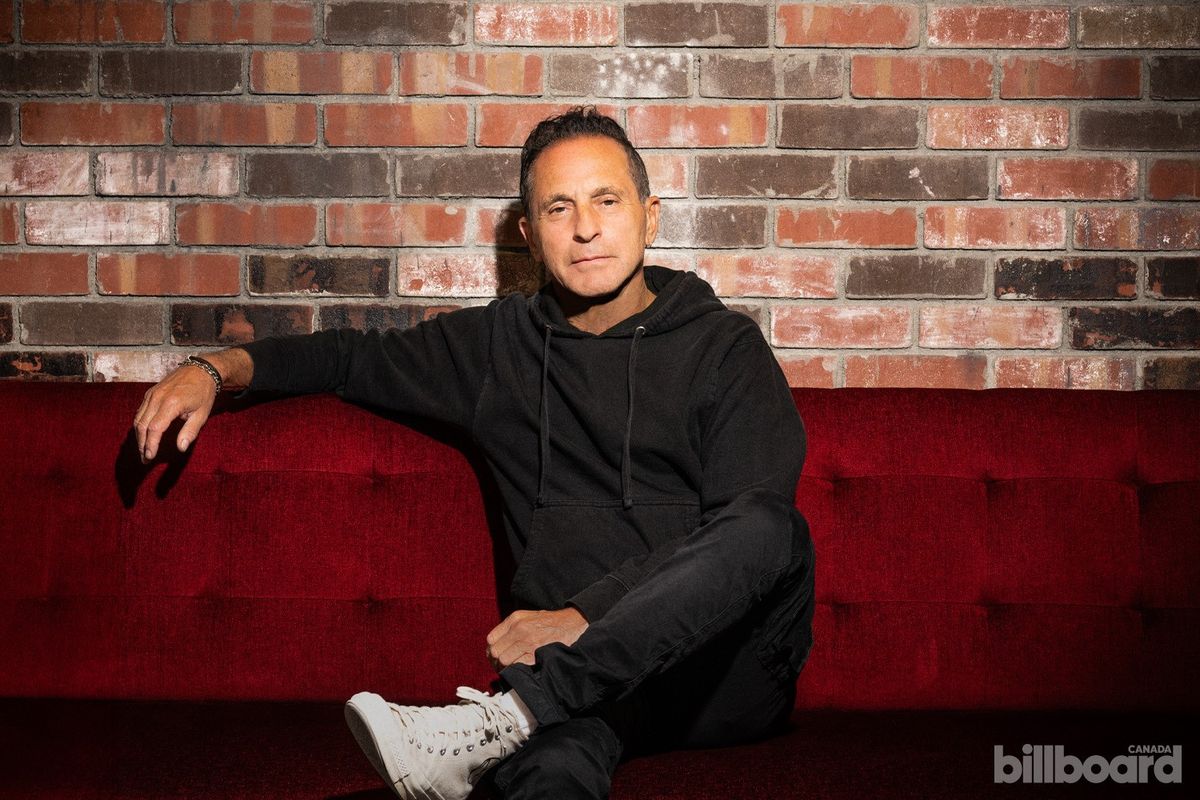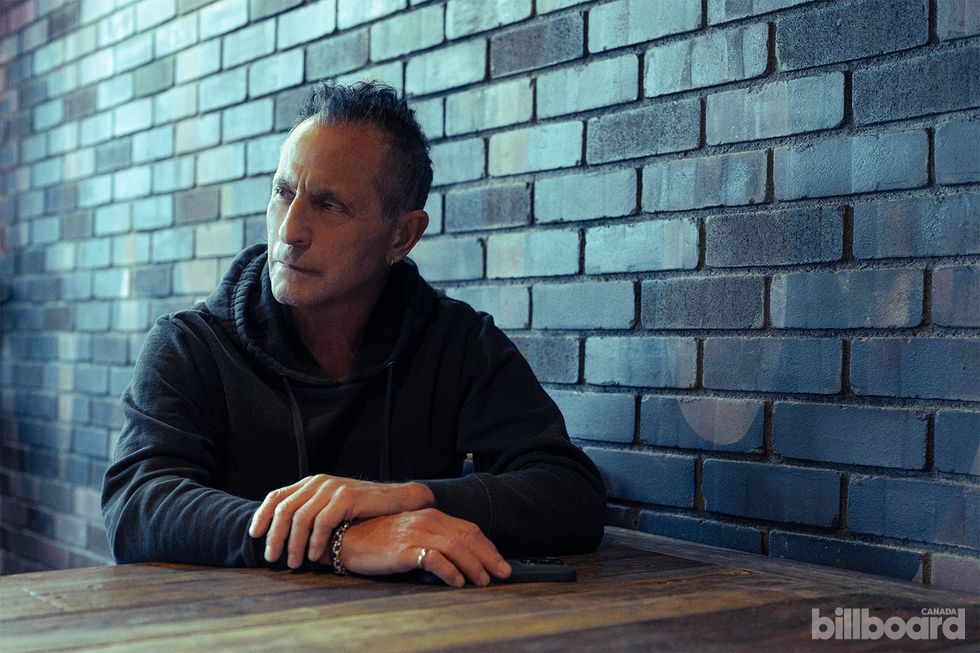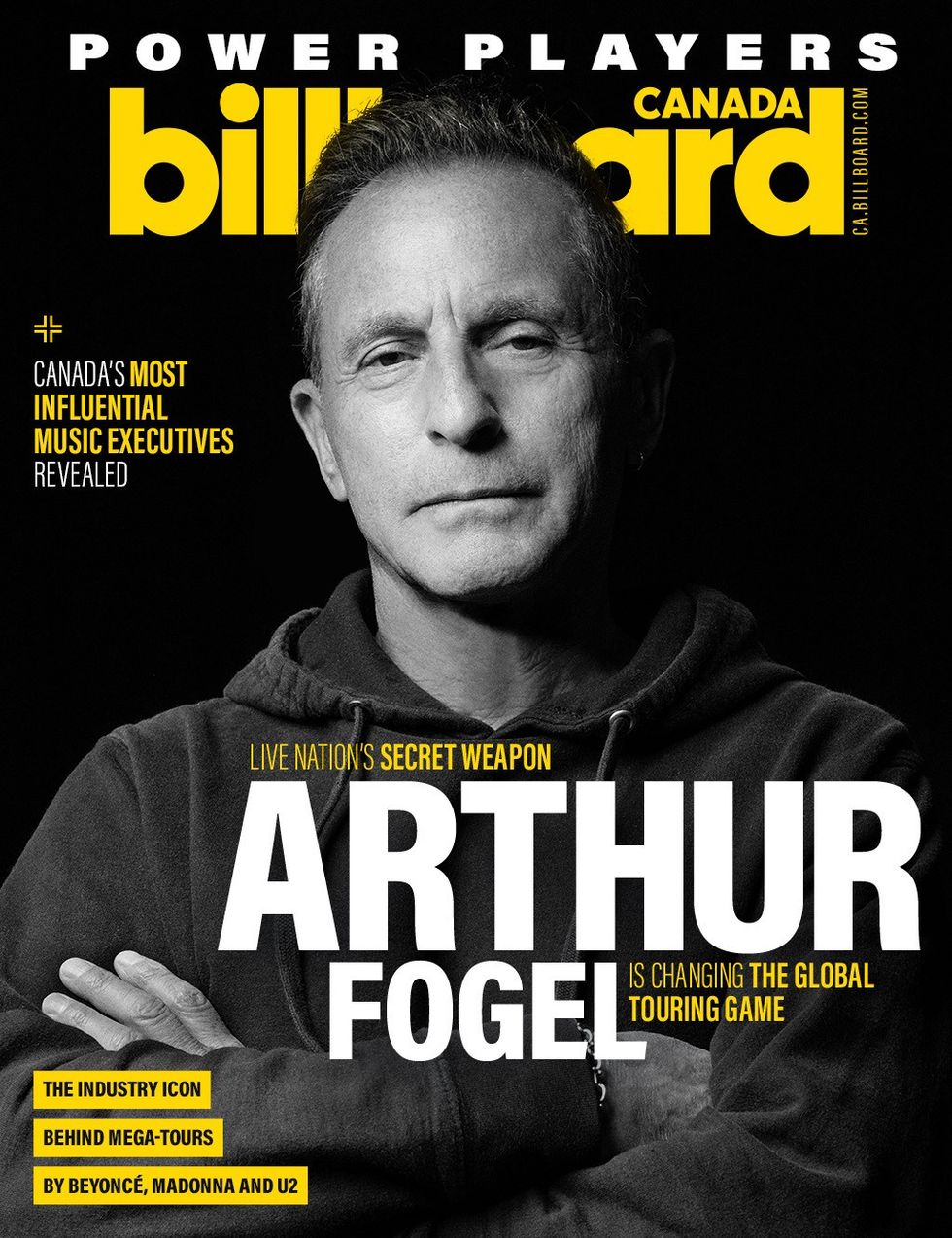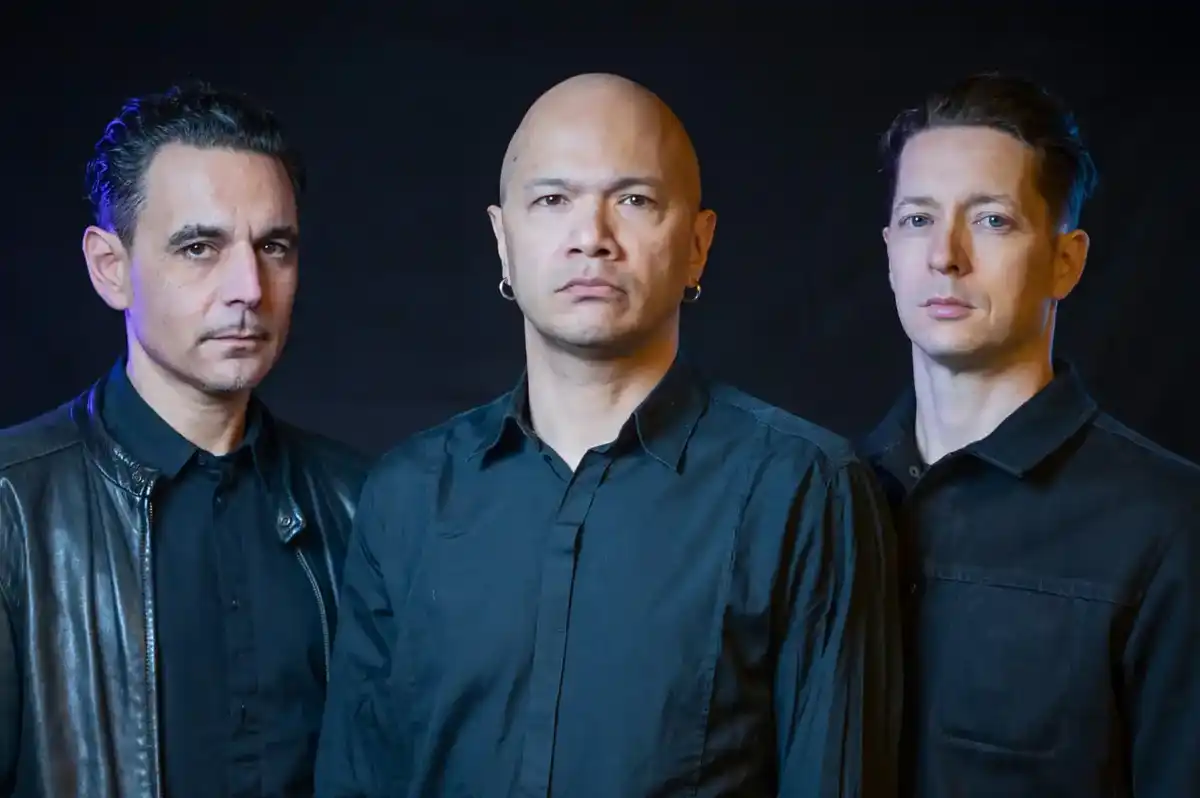Live Nation’s Arthur Fogel is No. 1 on Billboard Canada's Power Players 2024 List
Live Nation's CEO of Global Touring is the secret weapon behind some of the biggest tours of the past year from Beyoncé, Madonna and U2.

Arthur Fogel photographed in Los Angeles.
Live Nation's Arthur Fogel tops Billboard Canada's 2024 Power Players list, which is out now. The concert promotion company had an inarguably successful – and controversial – year, including some of the biggest global music events of the year.
The industry icon behind many of the biggest world tours of the last year started out at a punk venue in Toronto.
Beyoncé’s Renaissance Tour topped Billboard’s 2023 Boxscore list as the highest-grossing tour of the year and one of the biggest of all time. U2’s opening residency at The Sphere in Las Vegas redefined big-stage sound-and-vision spectacle and became the fastest-grossing residency in Boxscore history. And Madonna culminated her career-spanning Celebration Tour with a massive, record-setting concert on Copacabana Beach in Rio de Janeiro, Brazil, attended by more than 1.6 million people.
Arthur Fogel was instrumental in all of them.
Arthur Fogel is the Chairman of Global Music and President of Global Touring at Live Nation. He’s stationed at the company’s Los Angeles headquarters, but he’s one of several high-powered Canadian executives in their boardroom. Michael Rapino, Live Nation’s President and CEO, is also from Canada. And, Fogel notices, like they are on big stages, Canadians are overrepresented in some of the most important positions in the music industry.
“I don't think the Canadian industry gets enough credit on any number of levels. If you look at the artists that have come out of Canada over a number of years and generations, it’s pretty incredible how much talent that has come out of a country this size,” Fogel says. “The same holds true for the business side.”
Fogel has a theory why, and it goes back to his days in the Toronto punk and new wave scene.
Originally from Ottawa, Fogel came to Toronto as a musician and got a job as a manager at a downtown club called The Edge – now remembered as one of the most influential new wave venues of the late-‘70s and early-’80s. There, he met an up-and-coming band of local art students called Martha and the Muffins and became their tour manager. When the band scored an international hit with “Echo Beach” (now also the name of a Live Nation-owned venue in Toronto), they had to think beyond their national borders.
Because of Canada’s relative size and proximity to the U.S., Fogel thinks that’s a natural skill for an artist or promoter to learn.
“Canada is a relatively small segment of the business,” he says. “If you really want to develop your career, whether it's on the business side or the artist’s side, you have to figure out how to internationalize or globalize your talent. I think that’s a unique quality within Canada that's helped generate a disproportionate amount of exported talent.”
The Edge led him to Concert Promotions International [CPI], which was sold to SFX Entertainment, which was in turn sold to Clear Channel and eventually spun off as Live Nation. Fogel was one of the promoter’s day-one architects, which officially launched in 2005 and now considers itself the largest live entertainment company in the world.
Fogel’s most influential innovation was expanding the domain of concert promotion from local fiefdoms to partnering with artists for their entire tours. That started with the Rolling Stones’ 1989 Steel Wheels tour, for which Fogel negotiated to buy all of the tour dates. Now, thinking globally is standard practice for Live Nation and other global promoters like AEG (who partnered with Taylor Swift on her Eras Tour, another blockbuster live event of the year). That’s largely thanks to him.
When Fogel first started, concerts were seen as secondary – a promotional tool for artists to sell records. Now, in many ways, it’s the opposite.
“We were at the bottom of the food chain,” he remembers. “There’s no question the food chain has flipped.”
Nowadays, it’s undeniable that Live Nation is powerful. Many in the music business have complained it’s too powerful. The company’s hold on the market has made it controversial – with consumers facing skyrocketing ticket prices, with rival promoters unable to compete, and, most crucially, with the American legal system.
Shortly after Billboard Canada’s interview with Fogel, the U.S. Department of Justice officially filed a long-simmering antitrust lawsuit, accusing Live Nation of anticompetitive business practices and demanding that it and Ticketmaster – the ticketing market leader Live Nationmerged with in 2010 – be forced to break up.
Though he doesn’t comment directly on the court case, the usually soft-spoken exec does have some responses to anyone criticizing him for his influence. He attributes his own success to his own hard work and the relationships he’s developed over the years.
“It isn’t about scale or size or any of that because you can be big and not very good at what you do and it won't sustain,” he says. “When you look at a company like Live Nation, it's really a collection of individuals who have their own relationships with artists and managers. I mean, I was doing this before there was a Live Nation. At the end of the day, if you deliver and you do it well, it will lead to the next success.”
Prizing creativity and treating the live concert as an art form in and of itself has made him a favourite of stars from Lady Gaga to David Bowie, who have spoken glowingly of him over the years in the press and in Who the F**K is Arthur Fogel?, the documentary about him that came out in 2013.
With Fogel coming in as Billboard Canada’s No. 1 Power Player of the Year, he took some time to talk about his impressive career and his banner year.

You’re one of a handful of Canadians who’ve become very powerful in the music industry, not just in Canada but in America and globally. Your big innovation at Live Nation has been changing that view of concert promotion from booking your local market to thinking globally. Would you say being Canadian helped develop that strategy?
In some measure, yes. In the early days of conceiving and strategizing about a global concert promotion strategy, it became obvious quickly that the foundation would be going out into the world and figuring out how to execute. There was a time when it was all flowing one way, basically from the United States out into the world and to some degree, the U.K. What has really opened up the music business, and certainly the concert business, is multiple genres coming the other way. Latin artists have exploded, Kpop, Afrobeat. It’s created a whole new subset of fans. That’s fantastic for the growth of our business.
Has it also created a bigger concert market outside of North America?
Ultimately the best scenario [is] when the globalization of talent is flowing both ways. Certainly, in the early days of global touring, if there were 15 to 20 countries on an itinerary that was the norm. Now [you’re looking at], I don't know, 60 or 70: Central America, Latin America, Southeast Asia, Middle East, India, South Africa. It was always U.S. and Canada, UK and Western Europe, Japan and Australia, those were the tentpoles of the live business. Now, the world has opened up dramatically. There's more to come, but it's come such a long way. It's quite incredible.
There’s evidence of that in the recent Madonna Celebration Tour concert in Brazil, which was her biggest ever concert with over 1.6 million people. How did that come together?
Years ago, when I worked for Michael Cohl [at Canadian company Concert Productions International], the Rolling Stones played Copacabana Beach in Rio de Janeiro. The local promoter Luis Niemeyer actually did that show and I've stayed in touch with him on and off [since then]. He approached me early last fall with the idea to do it again. The discussions about how to pull it off played out [during] the early part of this year and it wasn't until the middle of March that everything came together. Certainly not a lot of time to pull off an event of this magnitude, but all credit to Niemeyer, to the city of Rio. They had a logistical plan, and that plan was executed extremely well. It was incredible. It was one of those once-in-a-lifetime events.
You also did the Beyoncé Renaissance tour. When she played Rogers Centre last summer, fans travelled to Toronto from all over the continent. They were planning their outfits, there was a mini economy of Beyoncé parties at bars around town. It feels like there’s been a shift for a lot of music fans from going to a lot of shows per year to picking a few and treating them each as a special event.
It's an interesting thing because the level of production, show and spectacle that an artist like Beyoncé creates on tour – those things cost so much money to create, to manufacture, to tour, to travel, to take to different cities and countries. So, on the one hand, there's this expectation that those artists will deliver a spectacle. On the other hand, sometimes people think it costs too much to go and see that spectacle. But it's all economics.
I think sometimes people have this notion that ticket prices are just sort of pulled out of the air. The notion that it's somehow just a bunch of profiteering for the sake of it is something that the average person wouldn't understand, because that's not their world. I’ve always been a big proponent of the live show. Performing live is its own art form. Anybody can go and play their songs and sometimes that's fine, but the performers that have always attracted me over the years are those that take that art form and really elevate it.
Who are some of those artists that elevate live performance as an art form who have inspired you?
For the artists I work with, U2 have always done that. They've always been cutting-edge. Back when I worked with David Bowie, his artistic vision always played a big part of his live shows. Certainly Beyoncé. Madonna is always creating such an amazing visual experience, production, experience around her tours. To me, that's the essence of the business and that is what helps propel longevity in an artist's career. After the show, [people are saying] “oh my god, that was amazing.” They tell their friends they have to go see it next time. It'll captivate their imagination and satisfy their relationship with that artist. To me, that's the essence of performing live.
When you’re talking about the logistics that go into a major event that someone buying a ticket might not see, what are the challenges going on behind the scenes to get those shows to the stage?
You lay out a tour that satisfies what the artist is looking to do and the number of shows they're prepared to play, and the amount of time they want to devote to a touring period. Then you have to create your budget for that itinerary. It starts with: what is the show? That gets built out with the artist and designers and creators. From there, what do you need to operate that show? What crew, what trucking, what bussing, what planes? Then there’s salaries and artist fees, insurance and security and on and on and on.
You get to a point where it's going to cost you X to create the show and get it to the first date. Then you have an operating cost on a weekly basis to move that thing around from city to city. You have to rent the building and security, advertising. And by the way, everybody deserves the right to make some money along the way, so that’s in the mix as well. You get to a point where it dictates what you need to charge in order for it all to work. I think sometimes in people's minds, it's the opposite. There's a ticket price and then it just happens.
You're mainly dealing with the top-tier artists who are playing these giant shows, but Live Nation also puts on smaller theatre and club events…
Thousands of them. Thousands of them. And not just Live Nation. There’s a whole volume of the concert business that isn't that top tier. It’s just the top tier that gets most of the attention. Taylor Swift is getting an inordinate amount of attention, as she should, because her tour is so successful. But there's thousands and thousands of shows with developing artists and traditional touring artists that are very much a part of the business.
One of the line items you mentioned is the cost of renting the venue. Over the past decade or so, Live Nation, especially here in Toronto and some other Canadian markets, has shifted from renting the venues to owning and operating them. There’s been some pushback from other promoters that it’s becoming harder to compete. Do you see that criticism, and does that perception affect how you operate?
[In terms of criticism], I see it everywhere in life. You know, people complain that there are certain sports teams that win too much. I think that, ultimately, success opens [you] up to lots of things. There's always people who want to take shots at the successful. I can only tell you from my perspective, at the end of the day, I do what I do, and I do it very well. And I don't mean that in an arrogant way. I just mean it in a sustaining way. I wouldn't still be achieving success if I didn't deliver for the artists. In my view, the artists that work with me and trust me to work on their behalf are doing so because I've spent my whole career figuring out the global reality of touring.
Looking back at those career accomplishments, where does the last year fit in for you?
For me, it was an incredible year. When I think about it, the last year was insane. [Beyoncé, Madonna and U2 at the Sphere] were three amazing milestones, and I get to tag along. To do all of those within a year was incredibly challenging and stressful, but each of them in their own way were greatly successful, greatly satisfying and each made their own statement. I wouldn't be able to do what I do, particularly in a year like last year, if it wasn't for a great team that are committed to being as good as they can be and delivering for fans and artists. And in the end, that’s what we're doing.
Read the whole 2024 Billboard Canada Power Players list here.


















